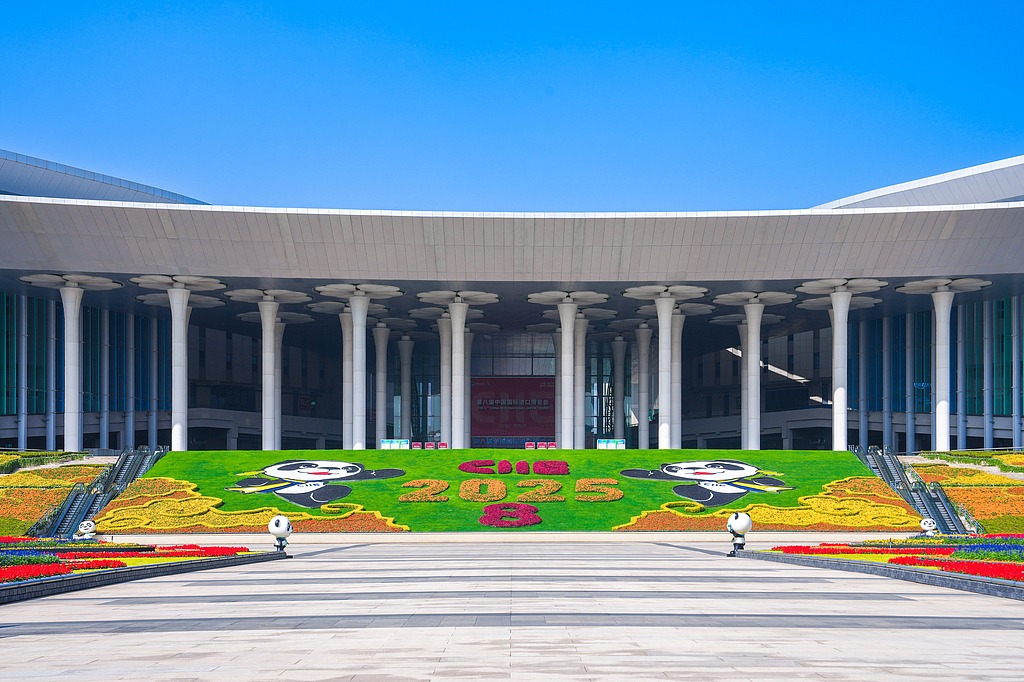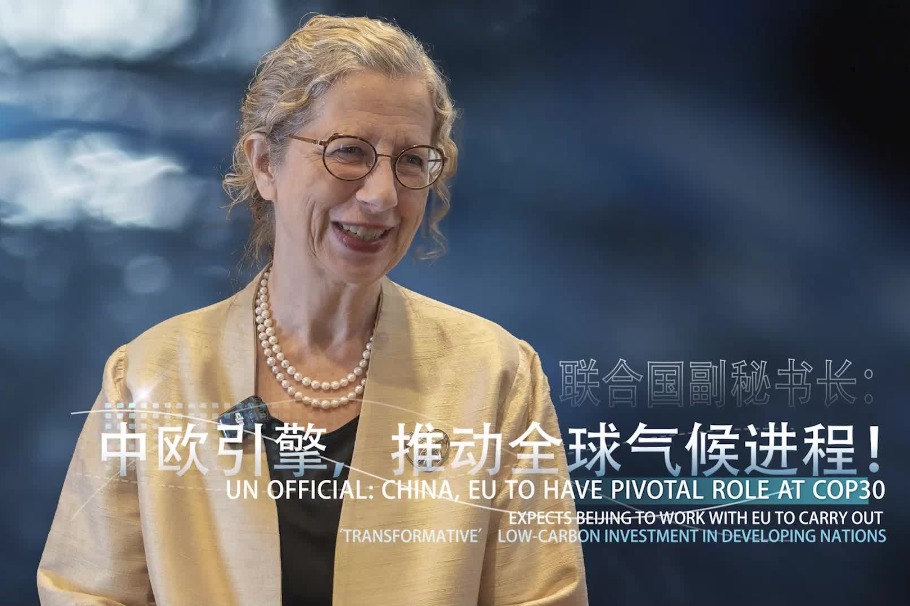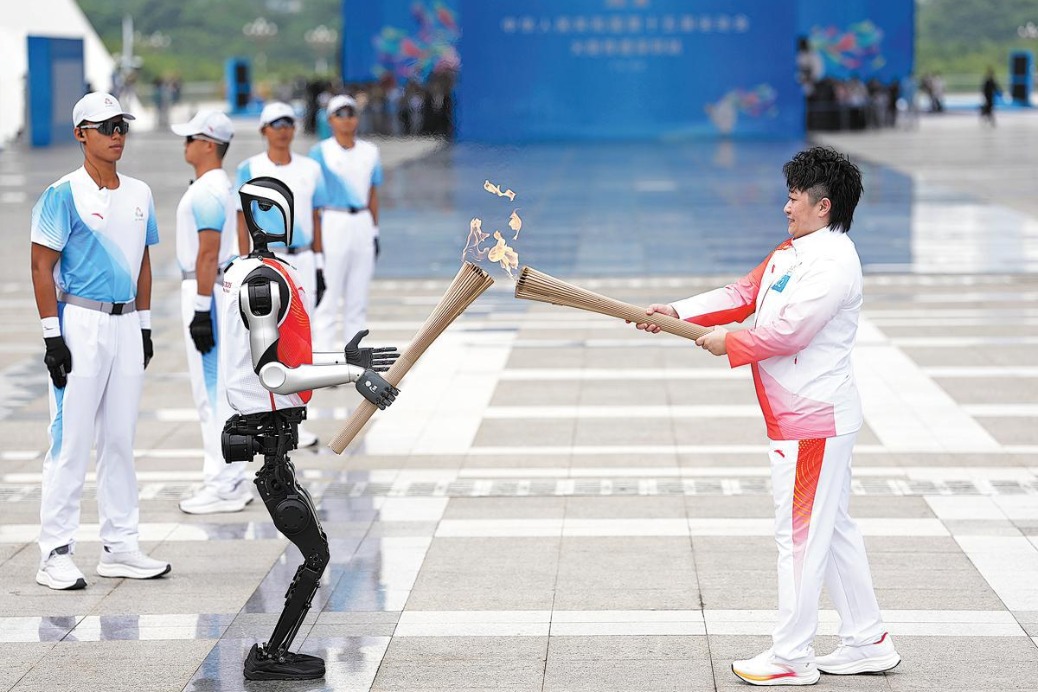Cooperation key to AI development


Editor's note: On Wednesday, Chinese scholars attending the Paris AI Summit, led by Fu Ying, former Chinese vice-foreign minister, engaged with the media including Le Figaro to discuss China-related topics significant to French society. Main points follow:
Answer to questions about China-EU relations
Fu Ying: In China, we are focused on domestic development. Our country is in a transition of the growth model and we need an external environment of peace and stability.
We may have disagreements with the Europeans, but that is not the main thing. We must focus on what we can do together. Politicizing and securitizing issues and using them as tools to weaken the other side are not going to work.
With the United States, the Chinese side calls for a relationship based on mutual respect, peaceful coexistence and win-win cooperation. The United States insists on strategic competition with China. But you do not hear the Chinese side defining the relationship as a competition. We prefer cooperation, but there must be mutual respect.
Each country has its own domestic politics and we are against interference in the internal affairs of other countries.
AI is the result of years of the world's scientific progress, it serves global common good and should not be used to promote hegemony.
In any relationship, when one side deals a blow to the other side, it can also harm its own interests. In our relationship with Europe, it is important to know what is the objective of Europe. If our relationship is dominated by European criticisms on human rights, it will lead nowhere. Europeans have their own issues in this regard. For its part, China wants to have a relationship based on cooperation.
Regarding the conflict in Ukraine, China has not taken sides for Europe. Countries take their own positions regarding conflicts. China wants to stay neutral, and prefers peace.
From the very beginning, China has called for a peaceful resolution. As early as in 2023, the Chinese side presented a 12-point position paper and has always called for a negotiated political settlement.
Fu Ying is former Chinese vice-foreign minister.
Response to questions about technology-sharing issues
Yao Yang: The problem is not that the Chinese companies do not want to share their technology. It is that some countries are digging in their heels on security, like with Huawei. Italy was the first country in Europe to ban the use of DeepSeek. Such securitizing of technology hinders the sharing of the benefits of China's technological progress.
The United States does not want to see fast development of AI in China, but DeepSeek became successful. If they prohibit us from accessing advanced chips, we will have to work on our own instead of using Nvidia. The US' behavior is like dropping stones on its own feet.
China's primary task in economy is to boost its domestic demand. The US insists on imposing tariffs on China and to remedy this we will have to develop the domestic market. But the traditional Chinese thinking emphasizes too much on savings, which are as high as 37 percent of their income. And the Chinese companies too do that, instead of investing and redistributing dividends.
On the issues of EV and technology transfer, China used to benefit from European tech transfer to develop its own automobile industry. Now China is willing to transfer the technology to Europe through joint ventures, allowing the Europeans to benefit from it.
Yao Yang is a professor at the China Center for Economic Research at Peking University.
Response to questions about US' foreign policies
Wu Shicun: As a scholar, I've been keeping a close eye on how the Trump administration's policies might affect the situation in the South China Sea.
I have noted that the Trump administration has shown an unprecedentedly strong attitude and offered some pretty bold ideas, like trying to buy Greenland, talking about making Canada the 51st state, and wanting to take back control of the Panama Canal. It looks like they want to redraw global boundaries, which has got a lot of people worried. It looks like the EU has stood behind Denmark on the Greenland issue, and Canada has rejected the notion of becoming the US' 51st state.
While the US has withdrawn from several international mechanisms like the WHO, most nations today prefer to maintain the existing international order. I think that China, France, and the EU would prefer to have the UN-centered international system effectively preserved.
Regarding AI, from my perspective, AI is a product of human civilization and technological advancement. We should share the benefits of technological progress and address potential risks together. For example, when the US invented cars and airplanes, could they prevent other countries from using them? No, and the same applies to AI.
Our current discussions about AI governance are perfectly reasonable, just like traffic rules were established after the invention of automobiles. Technological progress belongs to all of humanity, and we should work together to establish fair and reasonable governance frameworks that benefit everyone.
Wu Shicun is chairman of the Academic Committee of the China South China Sea Research Institute and president of the Huayang Center for Maritime Cooperation and Ocean Governance.
Answer to questions about AI leadership
Jiang Feng: The key isn't about who's leading in tech. What really matters is making technology better and ensuring everyone can access it. The US is making a big mistake here. It is trying to contain China, but that may backfire. France has always had this independent spirit, and now they're getting worried about the uncertainties brought about by US behavior. France needs to step up and play a role, showing strategic "autonomy". France is a great nation, and its people are meant to perform grand operas, not only serenades.
Jiang Feng is chairman of the Shanghai Institute for Global Governance and Regional Studies.
Answer to questions about tech cooperation
Xiao Qian: The Chinese technology companies hope to expand cooperation with other countries, but they face serious obstacles.
For example, after some Chinese companies were added to the US' Entity List, they lost some opportunities to cooperate with some countries in Southeast Asia. The US does not want to see China work closely in the field of artificial intelligence with other countries including those in Europe. Some people in the US are trying to turn AI technology into a tool to consolidate the country's global dominance.
Xiao Qian is deputy director of the Center for International Security and Strategy of Tsinghua University.
The views don't necessarily reflect those of China Daily


































